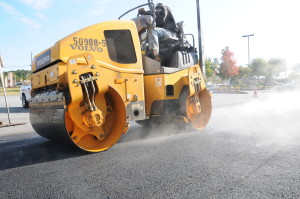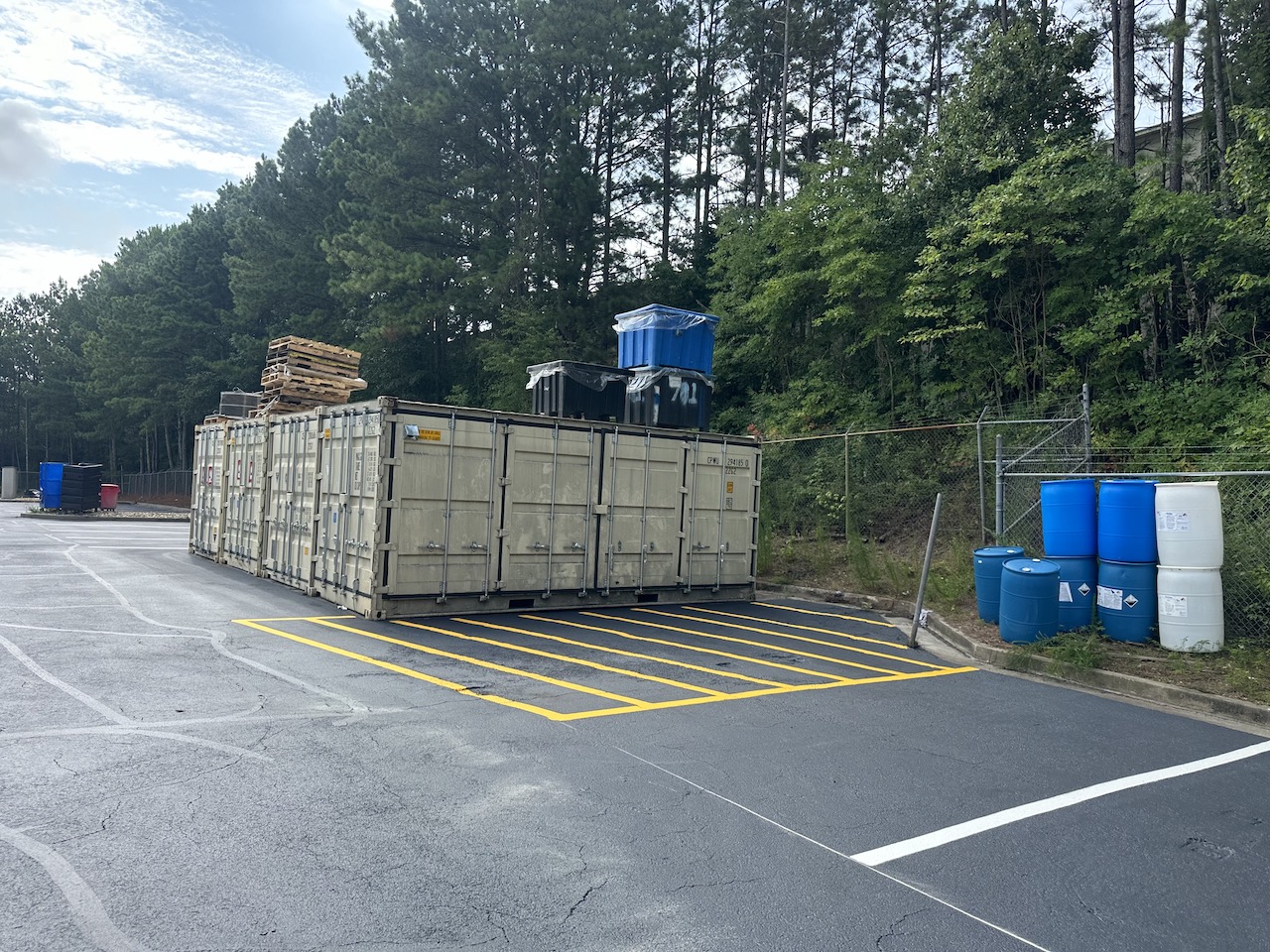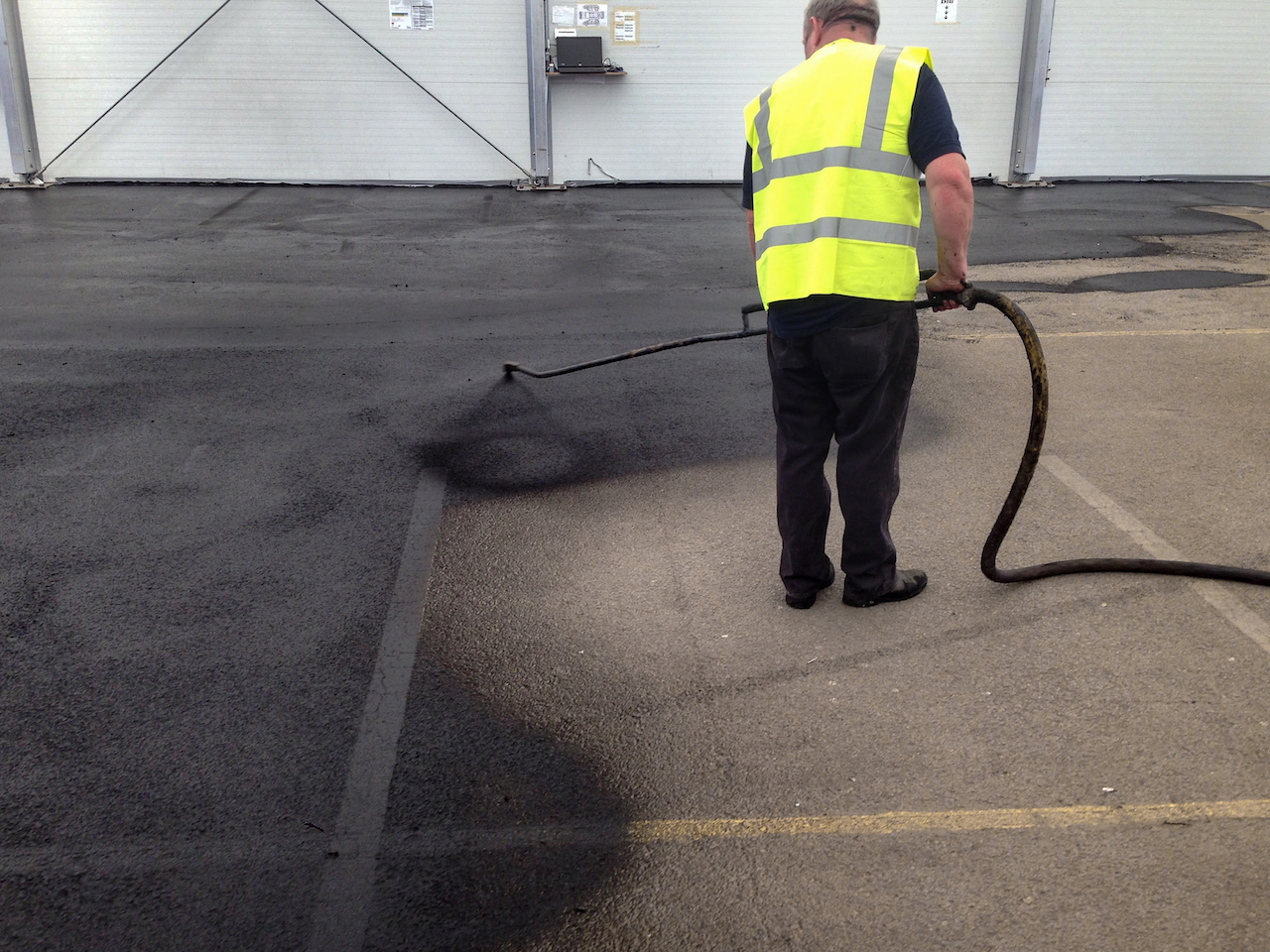
Is Drainage A Concern When Planning For Paving? – Dealing with Rain
Rain is typically the most worrisome type of precipitation for asphalt professionals installing driveways in the Atlanta area. The techniques used to help driveways shed rainfall will also be effective for the sleet or relatively light snowfalls that the area can receive on occasion. The exact methods used vary somewhat by site, but there are four techniques that are commonly used.
1. Grade: If you stand in the street and face a driveway, you might notice that most driveways gain elevation throughout their length. This grade lets water flow more efficiently to the gutters or drains in the street. If the grade is inadequate, water will drain more slowly or pool on the pavement. Your contractor can determine the precise grade that is needed for your specific site, but typically, if the driveway does not rise by at least one-quarter inch for each foot of its length, the grade is insufficient.
2. Slope: It is often necessary to “tilt” the driveway a bit to one side or the other. The difference in height between the two sides is often difficult to detect visually, but it can make a great deal of difference to how quickly the driveway can shed water.
3. Trench drains: Sometimes, there are special problems involved with the drainage of a driveway. For example, some garages are built below street level. Cutting a trench drain may be the best solution to speed up drainage and protect against water going where it is not wanted.
4. Pavement modifications: Another technique that is used occasionally involves pavement modifications. Contractors can place small grooves or side gutters in the pavement to redirect rainfall and carry it away.
Protecting Against Runoff
Asphalt contractors must also evaluate the possibility that your driveway could suffer from runoff. For example, if your driveway is lower than an adjacent section of your neighbor’s yard, rain may drain from his yard onto your driveway. The contractor may check to make sure that your roof’s drainpipes are not directing runoff toward your driveway.
It may be possible for your contractor to help protect your driveway by installing curbing to channel runoff away. However, other issues may be beyond the scope of his duties as they require the services of a landscaper, roofer or other professional. Your contractor will tell you if he detects issues that could affect the longevity, appearance or safety of your driveway that might need to be addressed.
For More Help
MH Greeson Paving provides a full range of asphalt maintenance and repair to customers throughout most counties of North Georgia, including the Atlanta metropolitan area. Our highly trained crews have the skills and experience needed to give our clients quality work at competitive rates. Whether you need your driveway paved, parking lot sealcoating or asphalt repair, you can count on MH Greeson. You can request a free quote by submitting our online form, or give us a call at 770-335-2983.




